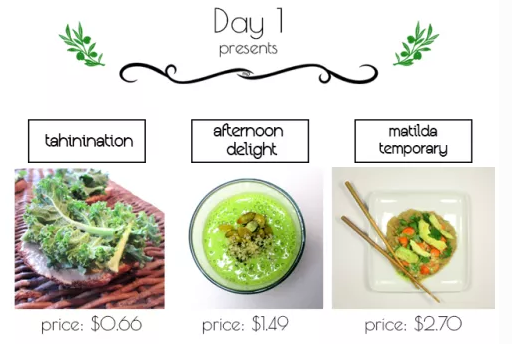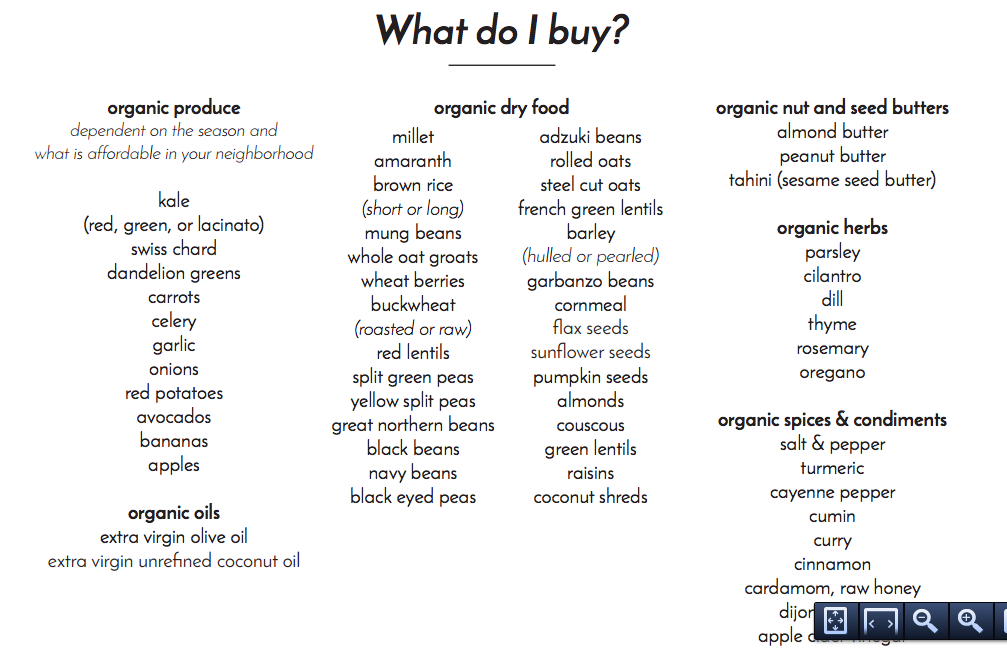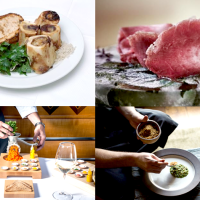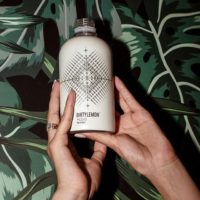A lot of people argue that healthy, organic food is expensive and inaccessible to the masses. To challenge this belief and inspire people to rethink their ability to eat better without breaking the bank, Edible Impacts launched a project called #30DAYStoSHINE.
Founders and self proclaimed “edible impactors” Alex Monroe and Brooke Sunness ate all organic, whole food, vegetarian meals on a budget of $5-7 per day for 30 days in New York City. They shopped for ingredients exclusively at Whole Foods and documented their 3 meals a day on their blog including recipes, photographs and daily nutrition and cost breakdowns.
The duo found that it is possible to eat plant-based, organic foods on a small budget, and they published their findings to empower others to eat better too. They drafted a 25 page manual, including recipe ideas, sample shopping lists and tips for eating healthy food on the cheap, as well as a comprehensive budgeting spreadsheet, which helps eaters create cost-plans for ingredients and recipes.
We chatted with Alex and Brooke via email to learn more about their findings from the project, their business model and their current project “exposed,”. Our interview has been edited for brevity.
______________
Food+Tech Connect: Can you tell me more about the inspiration for Edible Impacts?
Edible Impacts: We both love eating delicious foods including seeds, fruits, leaves, stems and roots, insatiable wild meat from the sea and tree nuts. We spend a lot of time discussing various preparations for these types of foods, shopping for these foods and researching histories of these food. Through our journeys into researching, cooking and consuming whole foods we became inspired by the opportunity to build social communities around food. Our conversations and research then began moving towards advertising, psychology, sociology, and philosophy. Finally, we decided we had some ideas that could create new perceptions about food…and here we are.
FTC: What is your business model?
EI: Through partnerships with small and large businesses and public organizations we are creating non-traditional campaigns and messages, what we call edible impacts, that influence consumers through mainstream marketing channels including online, social, and print media.
FTC: What impact do you hope to have?
EI: We are addressing a need gap that we see in the way in which whole foods are represented (or misrepresented) today. By building greater curiosities around food, challenging the current food system, and rearranging the framework that drives a person’s decisions, we are confident we can reduce the size of that gap.
FTC: What were your key takeaways from the #30DAYStoSHINE campaign?
EI: It’s easiest to write out our findings in list form.
-
How easy it is to cook, shop, prepare and make food once you understand a few insights that the campaign has taught us: Use quality, unprocessed, organic ingredients, pair with a legume or grain and top with quality olive oil and salt/pepper.
-
Organic food is even more affordable than we expected. We have pinpointed which foods drive up the grocery bill (meaning only to be eaten occasionally) and those organic staples that can be turned into many delicious creations.
-
The importance of being curious and willing to take risks in the kitchen – i.e. not following recipes or traditional rules and beliefs like roasting a banana to eat with beans and rice or making pizza out of something that isn’t white or wheat flour.
-
Learning about the short term gains from eating a balanced whole foods diet including increased energy, clarity, satiation, a closer connection to our bodies and a deeper appreciation and gratitude for our food and meals.
FTC: What’s next for Edible Impacts? Can you tell me more about your second project “exposed,”?
EI: We have created a #30DAYStoSHINE Manual, which anyone interested in eating on this budget or taking on the campaign as a challenge can do so. We hope to get more individuals and corporations to take on the effort as a challenge on a larger scale, so our objective is to continue buttressing the American understanding about accessibility, affordability, and tastiness of whole foods.
“exposed,” is the [un]dramatic reintroduction to [good] food. It is a solution that we believe can create a massive paradigm shift in the way people view [good] food. “exposed,” is a social value collaboration concept–interest groups working collectively to create dynamic social campaigns that represent a shared vision and influence diverse audiences. By collaborating with creative doers, social influencers and industry leaders and aligning them to a cohesive message that challenges our food choices and puts [good] food on the stage, we can make an impact, one that is exponentially influential.
We’ve created three iterations of “exposed,” and are now focused on finding partners who are truly interested in the growth of this message.
- Real People Real Food: challenging identity. what makes you, you.
- Kids Menu: challenging the dismal consistency in children’s food options offered by most restaurants.
- What Lies Ahead: challenging “healthy” food appeal by removing “healthy” from the messaging







